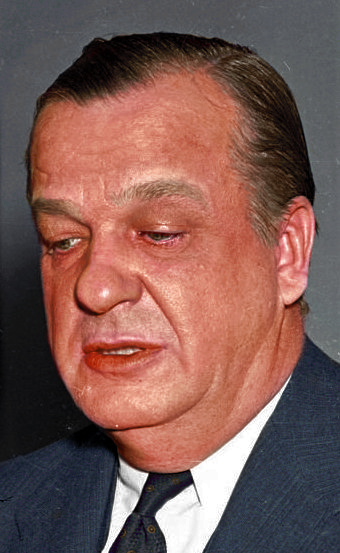The Evening Star (September 5, 1945)

Eliot: U.S. must heed advice on Japs
Holds with two advisers that Japan is just playing for time
By Maj. George Fielding Eliot
We were given some good advice yesterday about our policy toward Japan, and we had some concrete evidence that this advice was really very good indeed. The advice came from two very different sources. In Baltimore, the distinguished and experienced expert on Far Eastern affairs, Owen Lattimore, warned us that the objectives of the Japanese industrialists and court advisers are the same as the objectives of the militarists.
“The only difference is,” said he, “that the civilians and industrialists are the go-slow crowd about, aggression, while the militarists are the go-fast crowd.”
He said that no real democracy in Japan would be possible until the grip of this gang was broken, but that once this was done there exist in Japan the elements of “a genuine, spontaneous and thoroughly Japanese movement which would substitute for the Emperor a real republic.”
He warned that this will take time, and that we should be careful because the industrialists and their friends “are better prepared for defeat than we are for victory.”
“They already have put their collaborationist team in the field,” he said. “They are going to be awfully good boys with the Americans” and thus they hope to be left in power under the cover of a pseudo-democracy along the lines of the existing constitution, with all real power left in their hands.
![]()
Meanwhile, in Washington, a young American officer arrived after a record flight from Japan. He was Maj. Thomas A. Mesereau, aged 23, who commanded the first battalion of American troops to land on Japanese soil (the 3rd Battalion, 188th Parachute Regiment of the 11th Airborne Division). I am sure Maj. Mesereau would not claim to be an expert on Japanese affairs, but he gave his first-hand impressions, which seem to point in the same direction as Mr. Lattimore’s warning.
The Japanese, he said, bowed and smiled and complied with all requests. They acted about the way they would if they’d just lost a ball game, he said.
“In my opinion,” he added, “if we want to change the Japanese to our way of thought, occupation may have to last 20 years.”
As to the evidence, it is contained in a United Press dispatch from Tokyo which tells us that “the Japanese people will vote in a general election January 12 to 31, 1946, to satisfy the terms of the Potsdam declaration calling for a freely elected democratic government in Japan.”
The pattern is very clear. The same old gang around the Emperor are hard at work trying to make fools of us. The civilian ministers and the industrialists – the go-slow boys – have, for the moment gotten the upper hand and are pushing their military colleagues into the background, temporarily, of course.
The present purpose is a nice job of window-dressing, of winning sympathy, of “being awfully good boys,” so as to get this unpleasant occupation business over with as quickly and painlessly as possible.
They actually appear to think that we will believe that democracy can be born in Japan by next January, and that being born, it can exist and flourish under the terms of the present constitution. We are to be persuaded that just as the imperial authority was necessary to get the Japanese armed forces to surrender, so the imperial authority can next be used to establish democracy in Japan by a rescript from the throne.
![]()
It cannot be done that way and if we allow ourselves to be persuaded that it can – in order to bring our boys home and get a tedious burden off our shoulders – we shall be throwing away all that we fought for and that many thousands of young Americans died for: The chance that victory has given us to make a better, more peaceful world.
It will January, by a good deal, to enable the “democratic potential” which (as Mr. Lattimore assures us) does exist in Japan, to organize itself, to formulate a really substantial program, and to lay the foundations for a trustworthy Japanese democracy. The present leaders of Japan do not wish to see this happen. If it does, the whole system under which the few have, for their own advantage, ruled the many in Japan throughout all recorded Japanese history will be swept away.
Let us make no mistake about this matter. The Emperor, as an individual, hardly counts at all. What does count is the group about him, the barons of great wealth, the military leaders: They are all part of a system inherently feudal, under which nothing which could be called a true democracy can exist.